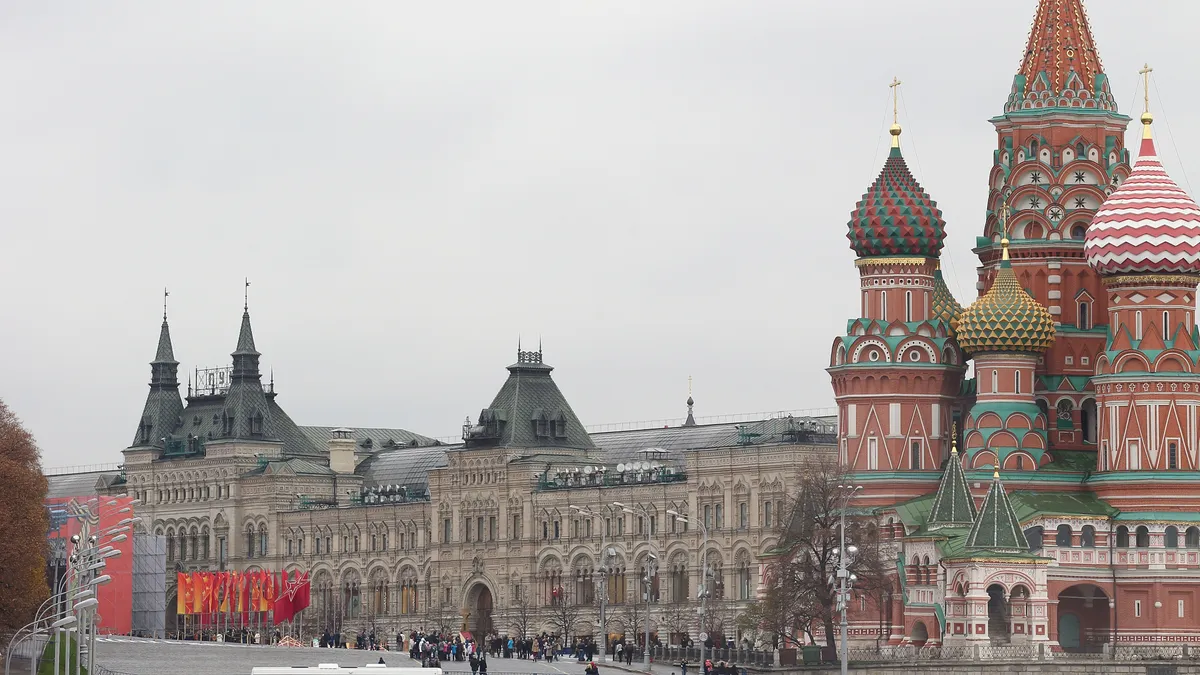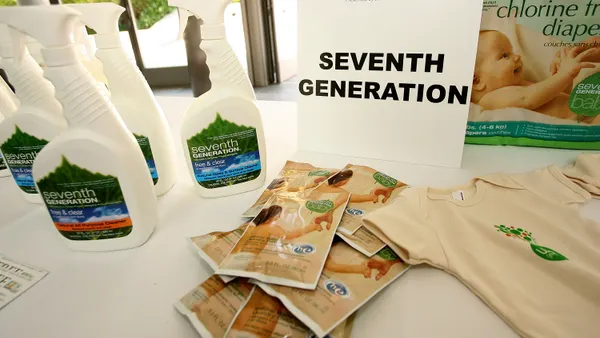Dive Brief:
- Interpublic Group of Companies will suspend operations in Russia due to the ongoing war in Ukraine, CEO Philippe Krakowsky said in a note to staff that was shared on LinkedIn. It has about 200 employees in Russia, some of whom have worked for the group for decades.
- Krakowsky said that the agency has grappled with how not to abandon its people in Russia, but that escalating conflict — including Russia's attacks on civilian targets like hospitals — has pushed it toward stricter action. IPG has been planning for this contingency since the crisis started two weeks ago and allocated enough capital to keep paying Russian employees for a minimum of six months.
- Next steps include ceding control of management and operations to local leadership teams to create an easy handoff for non-Russian clients continuing to work in the country. IPG joins other agencies in making tough choices around condemning Russia's aggression while safeguarding talent embroiled in the conflict.
Dive Insight:
IPG's decision to halt activity in Russia — a hard-line route leadership says it was hoping to avoid — suggests the dominoes are starting to fall among major ad holding groups with business in the country. CEO Krakowsky emphasized the agency didn't want to leave staff behind and affirmed that employees will have short-term financial support amid the broader pullback. The executive framed the move as more of a "difficult moral dilemma" for his team than a business decision. He also appeared to take shots at firms that took more immediate action in the early days of the conflict, which has now stretched on for weeks.
"Once the war began, some individuals and companies were quick to suggest they had all the answers. Sadly, there are no answers to this crisis that are either easy or absolute — every organization will need to determine the unique path that's best for them," Krakowsky wrote in the memo to staff. "The reality is that we are in the early stages of a historic moment which we will all be processing and coming to grips with for years to come."
WPP, which has a far more extensive Russian business with about 1,400 employees, announced intentions to wind down operations a week after the initial invasion of Ukraine. Last week, Havas CEO Yannick Bolloré said the company would suspend investments in Russia while trying to provide aid to those in Ukraine, a tactic that's becoming increasingly common. Other professional services providers with large marketing arms, like Accenture, have also started to pull out of Russia.
IPG previously had taken steps in reaction to the war, including the implementation of international sanctions. It informed clients from "prohibited parties" in Russia that it would no longer work with them. The group has never owned a media business in the country, which should allay concerns that it could be funding state media or supporting local economies, per Krakowsky.
IPG's decision reinforces that even agencies with comparatively small footprints in Russia are facing complex questions around remaining in the region. All of IPG's Ukraine agencies are affiliates. For the month of March, the company will match employee gifts to organizations providing aid to Ukrainians, Krakowsky said.
Brand-side marketers are weighing similar options as consumers ramp up pressure to take a meaningful stance on the war, a trend that indicates substantial accounts in Russia could dry up. General Mills, which does not wholly own any operations in Russia, over the weekend said it would freeze marketing activity and capital investments in the country. Russia accounts for less than 1% of the Pillsbury and Cheerios marketer's global sales. Coca-Cola, Pepsi, McDonald's and Procter & Gamble are among the major consumer brands that have taken a similar approach.













